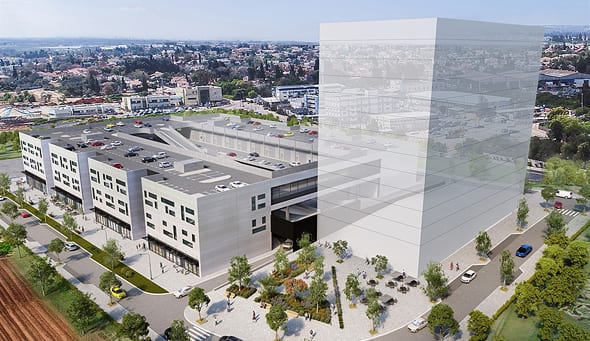Buying Real Estate as Part Of a Purchasing Group
The field of purchasing groups generates a lot of interest among investors, as well as professionals, in the real estate industry, but it is still a largely unregulated market, which allows in less professional players or those who “do not play by the rules”, who might jeopardize the group members’ investment in the project. We sat down with Tzahi Sufrin, one of the owners of the Sufrin Group, which specializes in organizing purchasing groups and is the Israeli pioneer and founder of the first purchasing groups in the country, so he can make some order and answer questions.
What is a purchasing group?
A purchasing group is a business method for starting-up a real estate project. A group of people who get together and decide to purchase a plot of land themselves and thereby assume responsibility for the success or failure of the initiative. Normally, this responsibility lies in the hands of the developer and contractor who build and market the apartments in the building. By removing the cost of a developer, the group members can end up building an apartment at a substantially lower price than the market price. On the other hand, when purchasing a property through a developer, the consumer is
protected by the law of sale.
Since locating the land and conducting initial planning and budgeting are complex tasks, the group usually approaches an organizing entity which provides them with professional service and assists in promoting the project.
Typically, the organizer locates the land, “buys” or receives an option from the landowners that guarantees him exclusivity for a limited period of time, during which he has to market the apartments in the project.
There are two types of organizers: the first, whose role starts and ends with locating a plot of land and forming the group. The second type is the type of service offered by the Sufrin Group – in addition to locating the project, the group members also receive professional guidance throughout the planning and construction process, as well as the financing and marketing of the project, until it is occupied.
Why does a purchasing group organizer not pay for the option?
The idea is that the organizer is not the one who buys the land. The members of the purchasing group actually purchase the land directly from the landowner. But the organizer must have some kind of affiliation to the land, so that he can market it, and this is done through the option agreement. Normally, the option is given to the organizer exclusively for a period of up to two years, during which time the purchasing group is supposed to come together and realize the option, and actually purchase the lot. In some cases, the organizer pays the landowners a “commitment fee” on the option, but not always. We do not pay for options, for example, thanks to our reputation. In principle, fulfilling the option and meeting its terms is crucial for the success of the project, and the Sufrin Group has never failed to do so. This often depends on locating the most attractive projects, that will guarantee high demand.
How did the COVID-19 pandemic affect the purchasing groups market?
Many people, and investors in particular, see this period, as an opportunity to turn to new investment channels and confront new challenges. For example, in a stable asset that will provide additional income, or as an investment with the potential for a future increase in value.
I think nowadays, when people have been spending a lot more time at home, whether due to quarantine, or due to working from home, they have realized that their home is their fortress, and have therefore decided to consider the possibility of purchasing a property. A purchasing group makes this endeavor accessible to many buyers at a lower price than buying an apartment in a regular project, with a higher profit potential. This is also a good period for investors, as the purchase tax on a second apartment has dropped and the interest rate on mortgages is low. Office buildings can be managed by a large number of owners, or one major owner.
What are the differences and advantages of this method over the one-owner per project method?
A building owned by several owners has two notable advantages. First, the buyer has the opportunity to own the property himself, as an investor or as an end user. When an entire building is owned by a company, the investor or end user will not be able to purchase part of it, and will not be able to profit from the property in the long-term. Even a small or medium-sized business owner who wants to rent a property in a specific building and location, cannot usually find a suitable place in a single-owned building, since property owners prefer to rent out maximum space to one entity on a long-term contract.
Secondly, in a multi-owner building, the management and maintenance company is owned by everyone and is not a source of profit for anyone. The management fee that a single property owner has to pay in such a building is the amount that is actually needed in order to maintain the building. In a single-owner building, however, the management and maintenance company is often another source of profit for the owner, at the expense of the tenants or small end users. Therefore, management fees in such a building will usually be higher than for a building with multiple owners.
How can you tell if a purchasing groups organizing company is reliable?
There are a few ground rules that ensure a proper conduct between a purchasing group and an organizer, whose job is to provide professional services only.
• It is mandatory to check if there is a valid zoning plan and if the organizer markets only what is approved by the zoning plan.
• The financial management of the purchasing group cannot be handled by the organizer, and should be handled by an attorney or accountant whose specialty it is, and selected by the group members without any influence from the organizer. He is the trustee of funds, to whom the purchasing group members transfer their money, and is solely responsible for all funds spent during the project.
• All decisions must be made by elected representatives of the purchasing group. The organizer himself or anyone on his behalf must not have the right to vote.
• Registration of caveats at the land registration office as a guarantee for the benefit of the group members is mandatory.
These rules are not fixed by law, since the field of purchasing groups is unfortunately unregulated. It is important to anchor these regulations in the law, as former Justice Minister Ayelet Shaked tried to do in the past.
On a personal note, the Sufrin Group operates in compliance with these rules, as well as additional rules that have been added to the company’s work practices over the years vis-à-vis its partners in all projects. We are in favor of institutionalizing the Purchasing Groups Act as part of the changes that should be amended.
At the end of the day, it is worth remembering that a real estate transaction is like running a marathon, it is a long-term investment and not a 100-meter sprint. If you do things in a controlled way, without looking for shortcuts, you will eventually reap the rewards.
Group members need to understand exactly what they are getting into, a transaction that bears certain risks, but also a chance to save on costs, and gain a higher profit and return. Since this method is so economically viable, many buyers have rushed into purchasing groups deals without thoroughly examining them. In recent years, however, most investors and end users know they must check under the hood before they join a group, and take their time.
I believe that purchasing groups will continue to exist for many years to come, and even develop and enter new markets and investment channels, while also becoming regulated by the authorities.
The Sufrin real estate group is one of the most prominent real estate companies in Israel. The group handles the foundation and management of projects in the fields of income-producing real estate, most of them within purchasing groups, and the promotion of residential projects, some of them in urban renewal. The group is also involved in the management and improvement of real estate properties. In recent years, the Sufrin Group has entered into collaborations with other large real estate companies, like Blue Square Real Estate, Big Shopping Centers, Clal Insurance and Phoenix Insurance Company, in order to construct mega projects in high demand locations.
Since its establishment, over a decade ago, the group has managed projects worth approx. NIS 9 billion. 12 projects have been completed and occupied, and 6 other projects are currently in the process of planning, construction and marketing.
The group was founded in 2009 by Kalman Sufrin, who recently won the Lifetime Achievement Award from the Engineers Association. Sufrin, a civil engineer by profession, a graduate of Civil Engineering at the Technion, is considered one of the most prominent figures in the field in Israel, and is responsible for noteworthy projects like the BSR Towers in Ramat Gan and Bnei Brak, Gibor Sport Tower in Ramat Gan, Manhattan Tower in Tzameret Park in Tel Aviv, Toyota Towers in Tel Aviv and more.


